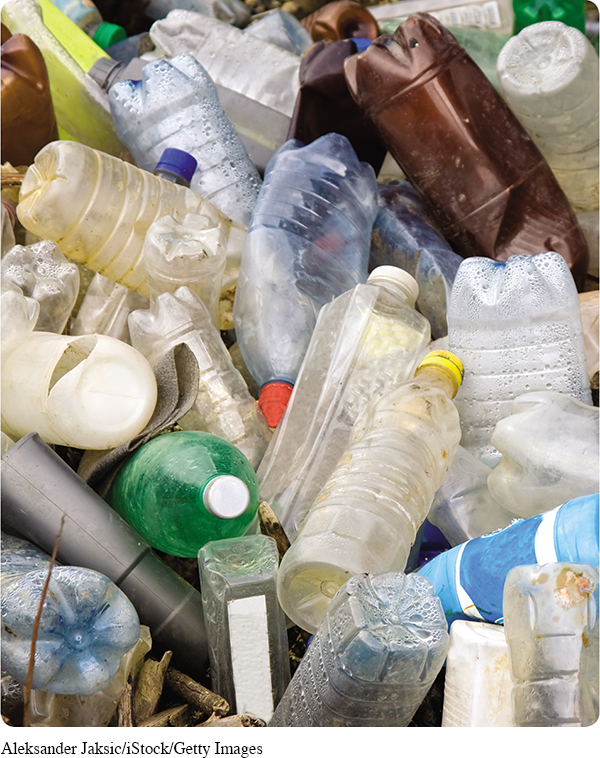Chapter 20: Should Bottled Water Be Banned on College Campuses?
See the additional resources for content and reading quizzes for this chapter.

Aleksander Jaksic/iStock/Getty Images
Three decades ago, the bottled-water industry barely existed in the United States. Although imports such as sparkling Perrier had snob appeal, most Americans saw water as a public utility that flowed from a tap. However, in response to both successful advertising and consumers’ health concerns, sales of bottled water soared in the 1990s, and brands like Evian and Poland Spring emerged as fashion accessories and markers of personal taste and social status. In 2011, Americans bought 9 billion gallons of bottled water; every year, the $22 billion industry grows by over 5 percent.
This growth has its benefits. In a country that favors soft drinks and struggles with obesity, the popularity of a healthy, convenient, calorie-free alternative to sugary soda is a good thing. However, critics of bottled water have become increasingly vocal, citing the environmental effects of manufacturing and disposing of billions of plastic containers. They also point to the expense of bottled water compared to its low-cost alternative from the tap and argue that the bottled-water industry’s aggressive marketing obscures the fact that tap water is generally held to higher health and safety standards than its bottled counterpart. As a result, numerous U.S. colleges, including Washington University and the University of Vermont, now ban the sale of plastic bottles of water on their campuses. Of course, the bottled-water industry has responded with its own campaign, which seeks to correct (in the words of the International Bottled Water Association) “misinformation” and the “highly emotional and incorrect” claims of critics.
The two essays in this debate have different perspectives on the question of whether or not to ban bottled water on campus. The staff of Harvard University’s newspaper, the Crimson, urges the student body to vote “yes” on the initiative to ban bottled water, arguing that the alternatives (water fountains and refill stations) will “take less time, cost . . . less money, and help the environment.” Although investigative journalist Charles Fishman shares some of these concerns, he dismisses the idea of banning bottled water on campus, saying this idea is sillier than bottled water itself.
